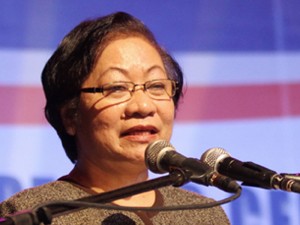MANILA, Philippines — Labor Secretary Rosalinda Baldoz has urged all sugar industry stakeholders to work together in finding solutions to mitigate the negative impact likely to be felt when tariff on imported sugar is reduced to five percent by 2015 from 18 percent in 2013 under the Asean Free Trade Agreement (AFTA).
Baldoz, during a meeting with sugar industry stakeholders recently, urged them to work with the Sugar Regulatory Administration in realizing the road map the government agency prepared for sugar self sufficiency and the use of sugarcane, sugar, and its by-products for bio-fuel (ethanol) production, and power co-generation.
However, she lamented the fact that no roadmap has been prepared for sugar workers.
She said such a roadmap should have the common objectives of making the Philippine sugar industry more efficient and competitive on one hand, and improving the lot of sugar workers as essential partners in production, on the other.
“For those who cannot remain in the industry, we have to prepare them for alternative employment, or livelihood,” Baldoz told the stakeholders.
“The workers should not be left behind; there is a need for us to move as one and fast to replicate or adopt existing successful models,” she added.
Baldoz directed the Bureau of Workers with Special Concerns, the DOLE agency tasked to lead the implementation of the Sugar Amelioration Program, to organize a two-day workshop with the sugar industry stakeholders to prepare the roadmap for the workers, which would be submitted to the President as part of the Sugar Industry Roadmap.
During the meeting, Sugar Industry Foundation Inc. (SIFI) president Edith Villanueva raised the concern that sugar productivity might go down as agrarian reform beneficiaries (ARBs) may not be prepared to assume their roles as new land owners.
“I am afraid the new land owners who are former sugar workers are not ready to become sugar planters,” she said.
Baldoz urged the Department of Labor and Employment’s (DOLE) program partners in the implementation of the educational assistance program (EDAP) for sugar workers, to use the EDAP as a vehicle in transforming agrarian reform beneficiaries, small sugar farmers, sugar workers, and their dependents into productive and efficient farm managers or technicians.
“The courses offered under the EDAP should include those that will train the beneficiaries or grantees in the areas of sound farming technologies and farm management, thereby contributing to the productivity of the industry,” she said.
